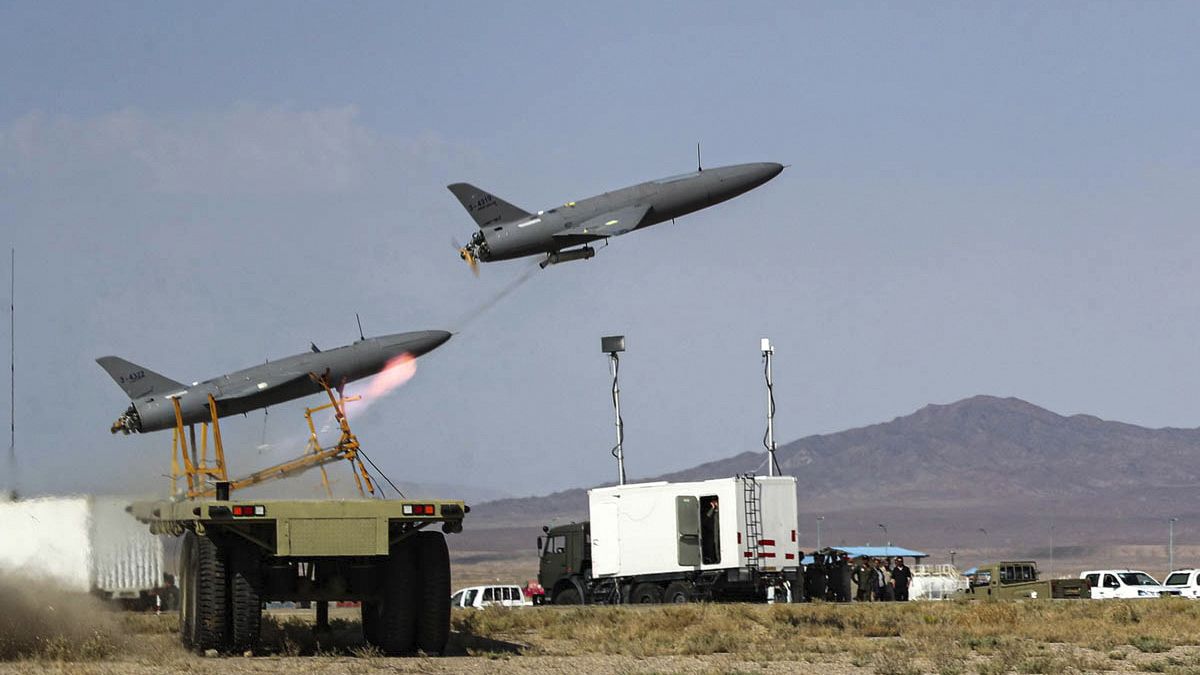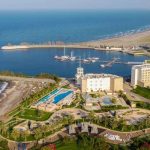The European Union recently implemented sanctions on three Iranian airlines and a top diplomat for supporting Russia’s actions in Ukraine. This move, which involved 14 new designations, aims to deter Iran from supplying ballistic missiles to Russia. The sanctions target key individuals and entities involved in the transfer, supply, and production of ballistic missiles as well as unmanned aerial vehicles. The individuals and entities affected will face asset freezes and travel bans, while EU entities are prohibited from conducting business with them. European Commission chief Ursula von der Leyen emphasized the need for additional measures to address the Iranian regime’s support of Russia’s aggression in Ukraine.
EU foreign affairs ministers met in Luxembourg to discuss further assistance to Ukraine in its conflict against Russia. High Representative Josep Borrell presented a proposal to bypass Hungary’s veto on €6.6 billion of military support for Ukraine. Additionally, a package of support to Ukraine’s energy sector was discussed. Ukrainian Foreign Minister Andrii Sybiha participated in the meeting virtually, calling for a strong response to Russian attacks on civilian vessels and ports that threaten global food security. He also briefed the ministers on the latest developments in Ukraine and President Zelenskyy’s “Victory Plan.” Discussions also centered on cracking down on circumvention methods that allow Russia access to technology and funds needed to finance its aggression.
David O’Sullivan, the international special envoy for the implementation of EU sanctions, participated in the meeting to discuss ways to prevent Moscow from accessing key technology and funds to support its illegal activities. Latvian Foreign Minister Baiba Braže highlighted the need for further sanctions, pointing out that EU companies continue to export goods to Russia that are not in line with existing sanctions. The EU has issued 14 sanctions packages against Russia in response to the conflict in Ukraine, targeting oil exports and dual-purpose goods among other products. The ministers also planned to discuss the escalating situation in the Middle East.
In response to Iran’s support for Russia in Ukraine, the EU imposed sanctions on several Iranian airlines and a deputy defence minister. These sanctions target key individuals and entities involved in the transfer, supply, and production of ballistic missiles and unmanned aerial vehicles for Russia. Ursula von der Leyen stressed the need for additional measures to address Iran’s support for Russia’s aggression in Ukraine, signifying the EU’s commitment to upholding peace and stability in the region. The asset freezes and travel bans imposed on the designated individuals and entities aim to deter further support for Russia’s actions in Ukraine.
The EU foreign affairs ministers met in Luxembourg to discuss additional assistance to Ukraine in its conflict with Russia. High Representative Josep Borrell proposed a way to bypass Hungary’s veto on military support for Ukraine, while also exploring support for Ukraine’s energy sector. Ukrainian Foreign Minister Andrii Sybiha called for a strong response to Russian attacks on civilian vessels and ports, emphasizing the need for increased energy assistance ahead of winter. Discussions also focused on preventing circumvention methods that enable Russia to access technology and funds necessary to sustain its illegal activities. The ministers planned to address the escalating situation in the Middle East during the meeting.
David O’Sullivan, the international special envoy for EU sanctions, participated in the meeting to discuss strategies to prevent Moscow from obtaining key technology and funds to support its aggression. Latvian Foreign Minister Baiba Braže highlighted the ongoing export of goods from EU companies to Russia that are not in line with existing sanctions, underscoring the importance of advancing the next sanctions package. The EU has issued multiple sanctions packages against Russia for its actions in Ukraine, targeting various exports and goods. The ministers were set to address the deteriorating situation in the Middle East, highlighting the EU’s commitment to promoting peace and stability in the region.











